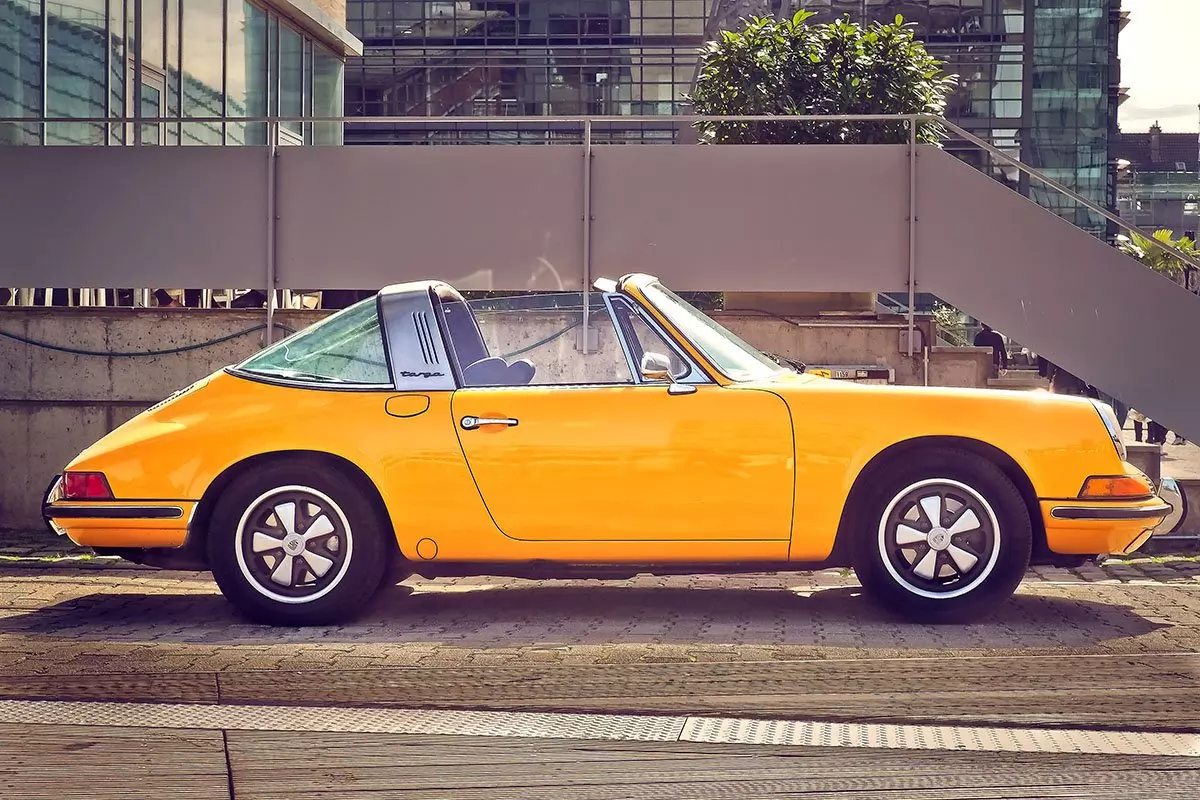What age is a car exempt from MOT? Our guide explains the age threshold for MOT exemption in the UK. Explore the benefits and considerations of owning an MOT-exempt vehicle. Get expert insights on vehicle safety, maintenance, and legal requirements.
What Age Is A Car Exempt From MOT? Quick Answer
Most cars and light vehicles in the UK need their first MOT when they’re three years old and then an annual MOT every year after that.
Some exempt vehicles—notably historic vehicles—do not need an MOT if they were built or first registered more than 40 years ago and have not had substantial changes in the last 30 years (for example, swapping the chassis, body, axles or engine in a way that changes how the vehicle operates).
You must still keep the vehicle roadworthy and you can still get an MOT voluntarily.
DVLA MOT exempt rules
Under Three Years Old (standard rule)
Vehicles under three years old do not require an MOT.
From the date of the first test, you’ll need an MOT every 12 months. If you’re unsure, visit the DVLA page and use the MOT history and status check tools. When you land on GOV.UK you’ll likely see a cookies notice—accept or review preferences and continue.
Important exceptions that require an MOT at 12 months:
Certain categories (often carrying passengers) require testing from year one, for example some taxis, ambulances, and larger private passenger vehicles (Class 4A/5A where a seat belt installation check applies). Always check class-specific regulations if your vehicle has 9+ seats.
The following vehicles need to undergo an MOT test when they are 12 months old:
- Ambulances and taxis.
- Private passenger vehicles and ambulances with 9 to 12 passenger seats.
- Class 4 vehicles with 9 to 12 passenger seats and a seat belt installation check.
- Class 5 vehicles with more than 16 passenger seats and a seat belt installation check.
- Play buses.
- Private passenger vehicles and ambulances with 13 to 16 passenger seats.
- Private passenger vehicles and ambulances with more than 16 passenger seats.
- Class 5 vehicles with 13 to 16 passenger seats and a seat belt installation check.
Over 40 Years Old (historic MOT exemption)
A car is typically MOT exempt if it was first registered more than 40 years ago and has not had substantial changes in the last 30 years. You do not need to apply each time to stop getting an MOT; the exemption is automatic, but you must keep the vehicle safe and roadworthy. Using a dangerous vehicle can result in penalties.
Examples of substantial changes (may mean you need an MOT):
- Replacing or altering the chassis/body (including a monocoque bodyshell)
- Changing the type/method of suspension or steering (axles & running gear)
- Fitting an engine with different fundamental characteristics (e.g., different number of cylinders), if it changes how the vehicle works
- Some period-type replacements are fine, but if in doubt, review the official information or speak to a historic vehicle expert.
Vehicle tax & the 40-year rule (how tax links to MOT exemption
If your vehicle was built before 1 January 1985, you can stop paying vehicle tax from 1 April 2025 by putting it into the historic tax class.
You still don’t have to book an MOT if it meets the 40-year exempt criteria (no substantial changes), but keeping it roadworthy is your responsibility.
Other MOT Exempt Vehicles
The following vehicles are exempt from MOT tests:
- Goods vehicles powered by electricity and registered before 1 March 2015
- Tractors.
- Some historic (‘classic’) vehicles as above
- Lorries, buses, and trailers don’t take a car MOT—they have a separate annual test (often called the annual vehicle test).
SORN, limited use & moving an exempt car
A car on SORN is exempt from MOT while off the road, but you must book before driving to a pre-booked MOT or repair.
Even when mot exempt, owners should ensure the car is safe (brakes, tyres, lights, structure) before any journey.
How to apply or declare the exemption
Vehicles manufactured before 1 January 1980
To apply for the corresponding tax and testing exemption, you normally complete form V112 (the MOT exemption declaration) when taxing the vehicle at a Post Office or online, and you may be asked to show evidence of the vehicle’s date of first registered/built.
Vehicles from 1 January 1980 onwards
When a qualifying car hits the 40 years old threshold and meets the substantial changes test, you don’t need to submit a separate MOT application—the system recognises the exempt status. You do need to apply for the historic vehicle tax class to stop paying tax.
Optional MOT for exempt vehicles (why you might still book one)
Even if your car is mot exempt, a periodic mot test (or a specialist safety review) can be a good idea—especially after long storage, restoration, or before a long trip. Many owners book a test for peace of mind and to get an independent review of safety items. You can also use the free government tools to check MOT history and set reminders.
Three-year rule: popular cases and seat-belt installation checks
Most cars (Class 4) need their first registered MOT at three years old; however, certain buses, ambulances, some private passenger vehicles, and taxis have earlier testing schedules and extra checks—like seat belt installation checks for Class 4A/5A—due to passenger capacity and safety regulations. Always select the correct class when you book an MOT.

“Substantial changes” – what typically qualifies (and what usually doesn’t)
Likely substantial: changing chassis, cutting/welding major body structures, converting leaf-spring to coil-over suspension, changing steering types (e.g., to rack-and-pinion), or installing a fundamentally different engine.
Usually acceptable: period-type upgrades, safety-led improvements to axles/running gear, or changes documented as common within 10 years of the model’s production ending, provided they don’t alter the way the vehicle works. When unsure, consult the official VHI guidance and, if needed, a marque specialist for support.
Making sure an exempt vehicle stays roadworthy
Even without an annual MOT test, owners should keep records of maintenance, repairs, and receipts. Inspect brakes, tyres, lights, steering, suspension, fluid leaks, and structural corrosion routinely. If you discover a problem, don’t drive until fixed. You’re legally responsible for safety at all times.
How to check your car’s status (and avoid admin mistakes)
Use the government page to check MOT status and history, set email reminders, and book tests with authorised stations. If you’re exporting/importing, re-registering, or changing the body/chassis, check how those changes may affect your exemption or tax class before you apply.
Special notes for goods vehicles & passenger-carrying vehicles
- Electric goods vehicles registered before 1 March 2015 are MOT-exempt.
- Lorries, buses, and trailers require a separate annual test (not a car MOT).
- Passenger vehicles with 13+ seats (Class 5/5A) usually need testing from year one and may need a seat belt installation check at mot testing centres approved for that class.
If the restoration involved substantial changes in the last 30 years, the car may require an MOT despite its age. Use the VHI guidance and, if needed, contact a specialist for an information review before you declare exempt.
Pass results are stored digitally; you can visit the government page to show details instantly. Many owners still print a copy for convenience when selling or for insurer support.
Yes—if it’s a pre-booked MOT or to a pre-booked repair appointment. Otherwise, driving without a valid MOT when required can lead to penalties. (Always keep the car roadworthy.)
Final checks before you book
- Confirm your vehicle class (4, 4A, 5, 5A, 7 etc.) and any seat belt or specialist checks applicable.
- If you believe your car is mot exempt, ensure it hasn’t had disqualifying substantial changes.
- If you want extra peace of mind, book a voluntary test—many owners of historic cars do.

If you want to find out more about classic car servicing and repair within Maidstone and Kent, then get in touch today.
Sources
GOV.UK – Historic (classic) vehicles: MOT and vehicle tax (eligibility, 40-year rule, historic vehicle tax, safety duty).
GOV.UK – Getting an MOT (list of exempt vehicles, V112 form, annual test for lorries, buses and trailers, electric goods vehicles registered before 1 March 2015).
GOV.UK / DfT – Vehicles of Historical Interest (VHI): Substantial Change Guidance (what counts as substantial changes to chassis, axles, steering/suspension, engine, and acceptable period changes).
DVSA – MOT inspection manual (seat-belt installation checks for applicable classes).
Note: Policy regulations can change (there have been consultations on first-MOT timing and related rules). For the most current position, always review the latest GOV.UK page before you apply or book.


